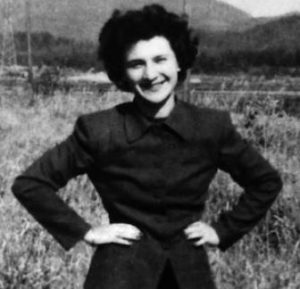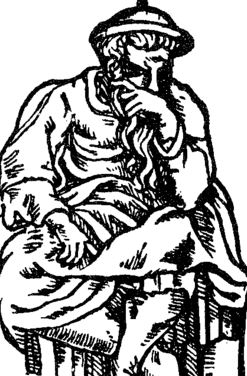The Woman Who Wrote Japan’s Constitution

Beate Sirota Gordon helped draft the Japanese constitution, and transformed Japanese society, when she was just 22 years old.
Beate Sirota (1923-2012) was born in Vienna, the daughter of Russian-Ukrainian Jewish immigrants. When she was five years old, her father, a popular musician, accepted a position to teach music at what is now the Tokyo University of the Arts. The family moved to Japan, where Sirota studied in German and American schools. At 16, she went to college in California and got a degree in languages, speaking English, German, French, Russian, and Japanese fluently. When World War II broke out, Sirota was one of just a handful of (non-Japanese) people in America who could speak Japanese, and went to work for the Office of War Information. Her main job was to monitor Japanese radio signals and translate their broadcasts. During this time, she had no contact with her parents who were still living in Japan. As soon as the war ended she volunteered to go to Japan as a US Army translator, hoping to find her parents (she did). She would become the first civilian woman admitted to the country. In 1946, the Americans started working on a new constitution for Japan and Sirota (the only woman on the committee) was tasked with writing the section on civil rights. She made it a priority to ensure that Japanese society would finally allow equality for all, especially better conditions for women who still had no rights in the country. Sirota personally drafted Article 14 (“All of the people are equal under the law and there shall be no discrimination in political, economic or social relations because of race, creed, sex, social status or family origin…”) and Article 24 (“Marriage shall be based only on the mutual consent of both sexes and it shall be maintained through mutual cooperation with the equal rights of husband and wife…”) Despite reservations from both the Japanese and American negotiators (who felt she was giving Japanese women more rights than even American woman had), Sirota eventually convinced her counterparts to include the clauses. She is therefore credited with being the central force for bringing social equality and women’s rights to Japan.
During her time working on the constitution, Sirota met her future husband, Lt. Joseph Gordon. They returned to the US and settled in New York. After briefly working for TIME magazine, Sirota pursed her passion for art, music, and dance. Meanwhile, she worked at the Japan Society helping Japanese students and immigrants (one of whom was Yoko Ono). Sirota played a large role in introducing Japanese (and Asian) music and art to the West. By 1970, she was Director of Performing Arts for the Asia Society, and began to travel all over Asia to remote communities in search of traditional art forms. She would then invite these artists on tours to the West. All in all, Sirota organized 39 tours in 16 countries. In the US alone, her shows were seen by 1.5 million people in 400 cities. She also made five films and multiple television programs about Asian art, and recorded 8 albums of music. For all of her tremendous work, Sirota received dozens of awards, including the prestigious Order of the Sacred Treasure from the Japanese government. In Japan, two films have been made about her life. In 1995, Sirota published a memoir in Japanese, followed by an English version in 1998, titled The Only Woman in the Room. Today, she is one of Japanese greatest feminist icons.
In Memory of Lori Kaye, 60, “Who Thought of Others Before Herself”
Words of the Week
Until now you have focused on what you need from God; it’s about time you asked, “What is needed of me?”
– Rabbi Schneur Zalman of Liadi (1745-1813)



 Lina Bauer (1830-1909) was born to a wealthy, religious German-Jewish family in Breslau (now Wroclaw, Poland). Her parents were noted social justice activists and philanthropists. Among other things, her father built an apartment building to provide housing for destitute workers, while her mother and aunts sought to save women from brothels and give them a proper education. Lina was raised with these important values. At just 18 years of age, amidst the wars of 1848, she established the Penny Society for Poor Pupils to raise money for shoes, clothes, and books for needy children. The organization would continue to operate for the next eighty years, providing countless children with basic necessities. Lina received an extensive education in music, literature, history, and science, and was so passionate about her studies that her mother wanted to take her out of school. Undeterred, Lina continued to study in secret at night. Meanwhile, she fell in love with a poor Polish Jew and married him in 1854 despite her parents’ wishes. The couple moved to Berlin and Lina (now Morgenstern) started to write to help pay the bills. Morgenstern was heavily influenced by the German thinker Friedrich Fröbel, famous for his concept of a “kindergarten” where small children can learn, play, and grow healthy and happy. Fröbel’s preschools did not go very far, and were even suppressed by the Prussian authorities. It wasn’t until Morgenstern co-founded the Berlin Women’s Association for the Advancement of Fröbelian Kindergartens that the idea took off. She chaired the organization for five years, during which time she established eight kindergartens, and a training academy for kindergarten educators. Fröbel’s other students established the first kindergartens in America, and the institution was soon adopted around the world. Morgenstern ultimately left her post to start a new charity: the Volksküche, or “people’s kitchen”. This organization distributed healthy meals to the poor, inspiring the thousands of soup kitchens that operate around the world today. Morgenstern herself opened up ten such kitchens, each serving as many as 2500 people per day! Morgenstern also published a number of important works on feminism, education, health, and child care. Her Das Paradies der Kindheit (“The Paradise of Childhood”) was the kindergarten textbook used globally for decades, and went through seven editions in her lifetime alone. Meanwhile, her Illustrated Universal Cooking Book – a result of all those years working in soup kitchens – was so popular that the Nazis did not include it in their Jewish book-burning list. Among the other organizations that Morgenstern founded are the School for Further Education of Young Ladies, the Berlin Housewives’ Association, the International Congress of Women, and the Berlin Society for Child Protection. During the Franco-Prussian War of 1870, she started a group for the care of soldiers, assisting some 60,000 troops. Morgenstern had become so popular and beloved that the German emperor and empress, Wilhelm and Augusta, visited her and became her patrons. Morgenstern was awarded the Victoria Medal, the Service Cross, and the War Medal. Despite all this, she was a central target for anti-Semites, and their attacks ultimately forced her into bankruptcy and illness. The Empress sent her to San Remo to recover, but it was not enough. Morgenstern left the public sphere and spent her last years writing. Among her final works is a collection of 250 biographies of inspiring women. In those last years she also directed the German Peace Society, advocating for pacifism, arms reduction, and peaceful coexistence. Disbanded by the Nazis, the organization was reformed in 1945, and continues to operate to this day. Morgenstern quietly passed away in 1909, and is buried in Berlin’s Jewish cemetery.
Lina Bauer (1830-1909) was born to a wealthy, religious German-Jewish family in Breslau (now Wroclaw, Poland). Her parents were noted social justice activists and philanthropists. Among other things, her father built an apartment building to provide housing for destitute workers, while her mother and aunts sought to save women from brothels and give them a proper education. Lina was raised with these important values. At just 18 years of age, amidst the wars of 1848, she established the Penny Society for Poor Pupils to raise money for shoes, clothes, and books for needy children. The organization would continue to operate for the next eighty years, providing countless children with basic necessities. Lina received an extensive education in music, literature, history, and science, and was so passionate about her studies that her mother wanted to take her out of school. Undeterred, Lina continued to study in secret at night. Meanwhile, she fell in love with a poor Polish Jew and married him in 1854 despite her parents’ wishes. The couple moved to Berlin and Lina (now Morgenstern) started to write to help pay the bills. Morgenstern was heavily influenced by the German thinker Friedrich Fröbel, famous for his concept of a “kindergarten” where small children can learn, play, and grow healthy and happy. Fröbel’s preschools did not go very far, and were even suppressed by the Prussian authorities. It wasn’t until Morgenstern co-founded the Berlin Women’s Association for the Advancement of Fröbelian Kindergartens that the idea took off. She chaired the organization for five years, during which time she established eight kindergartens, and a training academy for kindergarten educators. Fröbel’s other students established the first kindergartens in America, and the institution was soon adopted around the world. Morgenstern ultimately left her post to start a new charity: the Volksküche, or “people’s kitchen”. This organization distributed healthy meals to the poor, inspiring the thousands of soup kitchens that operate around the world today. Morgenstern herself opened up ten such kitchens, each serving as many as 2500 people per day! Morgenstern also published a number of important works on feminism, education, health, and child care. Her Das Paradies der Kindheit (“The Paradise of Childhood”) was the kindergarten textbook used globally for decades, and went through seven editions in her lifetime alone. Meanwhile, her Illustrated Universal Cooking Book – a result of all those years working in soup kitchens – was so popular that the Nazis did not include it in their Jewish book-burning list. Among the other organizations that Morgenstern founded are the School for Further Education of Young Ladies, the Berlin Housewives’ Association, the International Congress of Women, and the Berlin Society for Child Protection. During the Franco-Prussian War of 1870, she started a group for the care of soldiers, assisting some 60,000 troops. Morgenstern had become so popular and beloved that the German emperor and empress, Wilhelm and Augusta, visited her and became her patrons. Morgenstern was awarded the Victoria Medal, the Service Cross, and the War Medal. Despite all this, she was a central target for anti-Semites, and their attacks ultimately forced her into bankruptcy and illness. The Empress sent her to San Remo to recover, but it was not enough. Morgenstern left the public sphere and spent her last years writing. Among her final works is a collection of 250 biographies of inspiring women. In those last years she also directed the German Peace Society, advocating for pacifism, arms reduction, and peaceful coexistence. Disbanded by the Nazis, the organization was reformed in 1945, and continues to operate to this day. Morgenstern quietly passed away in 1909, and is buried in Berlin’s Jewish cemetery.